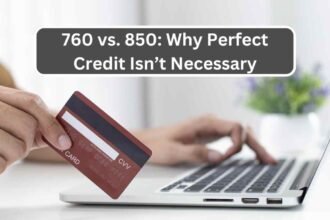When facing high loan balances, it can be tempting to use credit cards as a quick fix to pay off your loans. However, as we’ve discussed, this approach involves considerable financial risk. Racking up additional high interest credit card debt can dig you into a deeper hole.
Fortunately, safer and smarter alternatives to paying loans with credit cards exist. By exploring these options, you can potentially reduce interest rates, consolidate multiple debts, and pay off loans faster.
This article will overview alternate strategies to pay off loans without relying on credit cards and their pitfalls.
Debt Consolidation Loans
One of the top alternatives is to take out a dedicated debt consolidation loan. This type of personal loan allows you to roll multiple debts into one, potentially saving substantially on interest compared to credit cards.
How They Work
With a debt consolidation loan, you receive a lump sum of cash up front that is used to pay off your existing loans and other debts. This leaves you with just a single monthly payment on the consolidation loan.
These loans come in two main forms:
- Secured – Backed by an asset like your home in a home equity loan or line of credit
- Unsecured – Not backed by any collateral
The loan term, payment amount, and interest rate are fixed over a set repayment period, usually 2 to 5 years. Having just one payment can simplify managing monthly bills.
Benefits
Consolidating multiple loans or debts through a single new loan has some attractive benefits:
- Lower interest rate – Interest on consolidation loans may be significantly less than credit card rates, saving substantially on interest.
- Fixed payment – Having a predictable, fixed monthly payment makes budgeting easier.
- Pay off debts faster – Being able to pay more than minimums on credit cards each month helps pay off principal faster.
- Simplify finances – Roll multiple debts into a single monthly bill with one lender.
- Improve credit score – Paying off credit cards responsibly can improve your credit utilization ratio.
- Interest tax deductions – Certain loans offer tax deductible interest for added savings.
What to Look For
To get the best debt consolidation loan, look for:
- Competitive interest rates of 10% or less
- Loan terms of 3-5 years to pay off debt faster
- Low origination fees or charges
- Flexible loan amounts and terms
- Option to prepay without penalty
Risks and Downsides
While usually better than paying with credit cards, consolidation loans do come with some risks:
- Defaulting on the loan if you remain overextended
- Digging deeper into debt with high loan amounts
- Hard credit inquiries lowering your credit score temporarily
- Losing collateral with secured loans if you default
- Extending debt payoff time with very long terms
Overall though, consolidation loans tend to be safer and less expensive than credit card debt.
Personal Loans
Personal loans are another useful way to pay off credit card, auto, student loan, or other debt without needing a credit card balance transfer.
These unsecured loans provide an upfront lump sum that you repay over a fixed term at lower rates than credit cards. Terms are generally 2 to 7 years. They are easy to qualify for based on credit scores and debt-to-income ratios versus income.
Personal loans have fixed monthly principal and interest payments. This helps you budget and gives you a clear path to becoming debt free. Interest rates are based on creditworthiness but often less than 10% for borrowers with good credit.
This predictable loan structure helps ensure you pay off balances faster without the temptation of racking up more high interest credit card debt.
Asking Lenders for Lower Interest Rates
Before turning to consolidation loans or personal loans, another option is simply asking your current lenders for lower interest rates on existing debts. You can request rate reductions on:
- Mortgages
- Auto loans
- Personal loans
- Student loans
- Credit cards
This avoids taking on new debts to pay off old ones. The worst they can say is no. But if you have been a long time customer with good payment history, lenders may be willing to lower rates to keep your business.
Having a lower interest rate reduces monthly payments and helps more of your payment go to principal. This allows you to pay off loans faster.
Using Windfalls Wisely
Coming into some extra money through a tax refund, inheritance, bonus, or other windfall provides the chance to make a big dent in loan balances. Rather than spending this cash on non-essentials, use windfalls to pay down high interest debt:
- Put tax refunds towards loans
- Use bonuses or inheritance to pay down mortgage and credit cards
- Sell assets like a car or valuables to eliminate auto or personal loans
When you suddenly have extra money, resist temptation to spend it and instead capitalize on the opportunity to pay off loans faster. This saves substantially on interest payments over time.
Peer-to-Peer Lending
Peer-to-peer online lending networks like LendingClub and Prosper connect individual investors with borrowers directly. This allows borrowers to access fixed-rate personal loans at often lower interest rates than traditional banks.
Average rates for borrowers with good credit are around 6-15% based on your credit profile, much less than credit card rates. These P2P lenders use online algorithms to match borrowers with investors efficiently.
By letting individual investors provide funding, peer-to-peer lending increases competition which drives down rates. This model can extends more affordable credit to more borrowers.
0% Credit Card Balance Transfers
We’ve discussed the risks of relying on credit cards to pay normal loan payments each month. However, targeted credit card balance transfer offers present another opportunity.
Many cards offer 0% APR promotional periods of 12-18 months on transferred balances. Carefully transferring a high interest loan balance to one of these cards allows you to pay no interest for over a year while aggressively paying down the debt.
Just be sure you have the budget and plan to fully pay off the card before rates rise back to normal high levels.
The Right Approach for You
As you can see, multiple alternatives exist to credit cards when needing to pay off loans. Think about your specific debt and budget situation. Then research options like consolidation loans, personal loans, lower lender rates, windfalls, peer-to-peer lending, and strategic balance transfers.
Pick the debt payoff strategy that gives you the best interest savings while fitting your financial habits. The right approach will help you become debt free faster and more affordably. Just be sure to avoid the temptation and risk of relying on credit card quick fixes.





